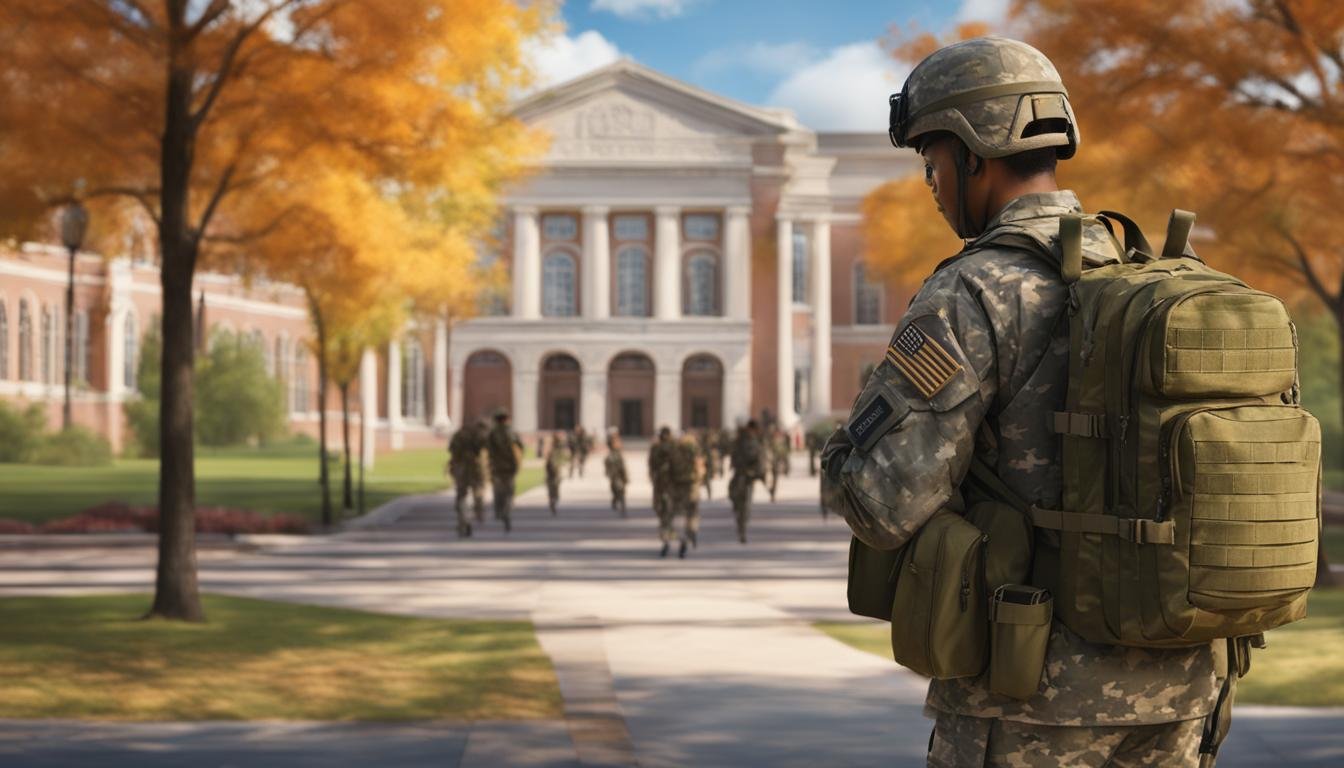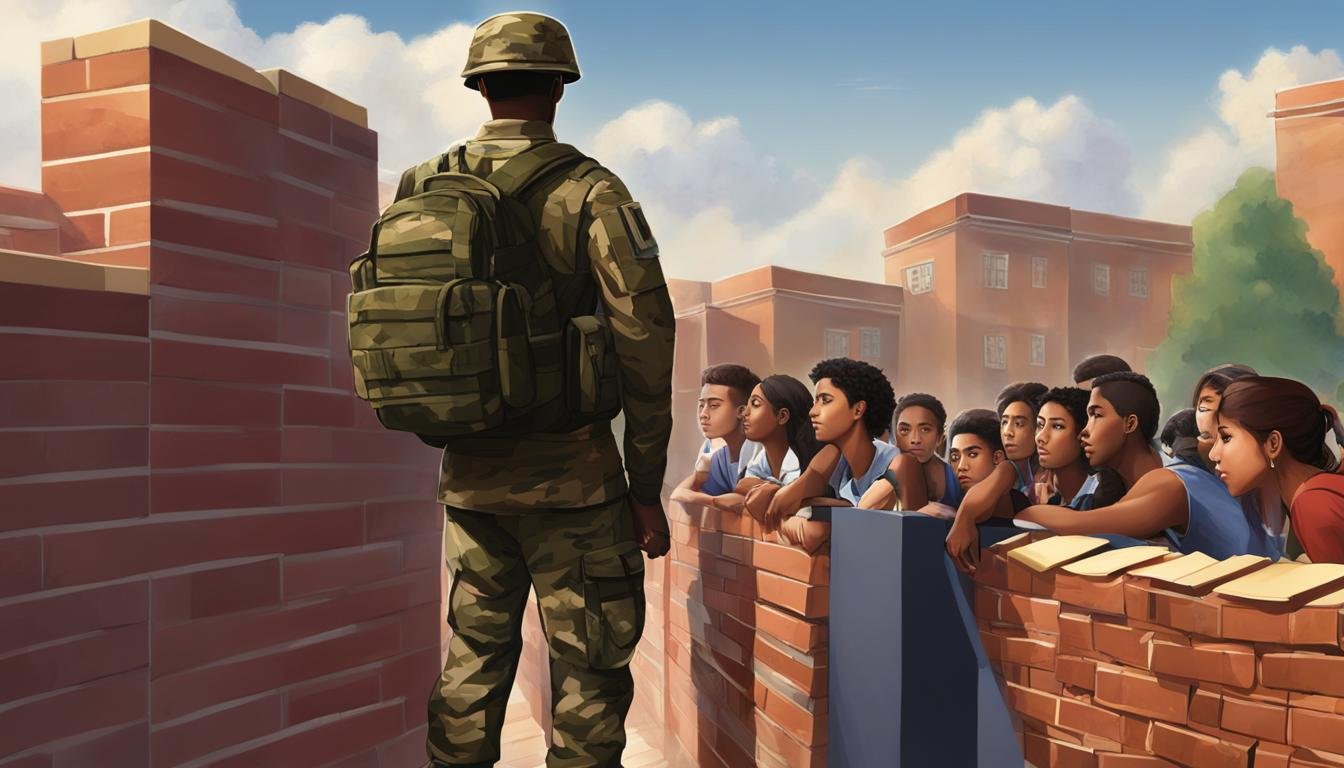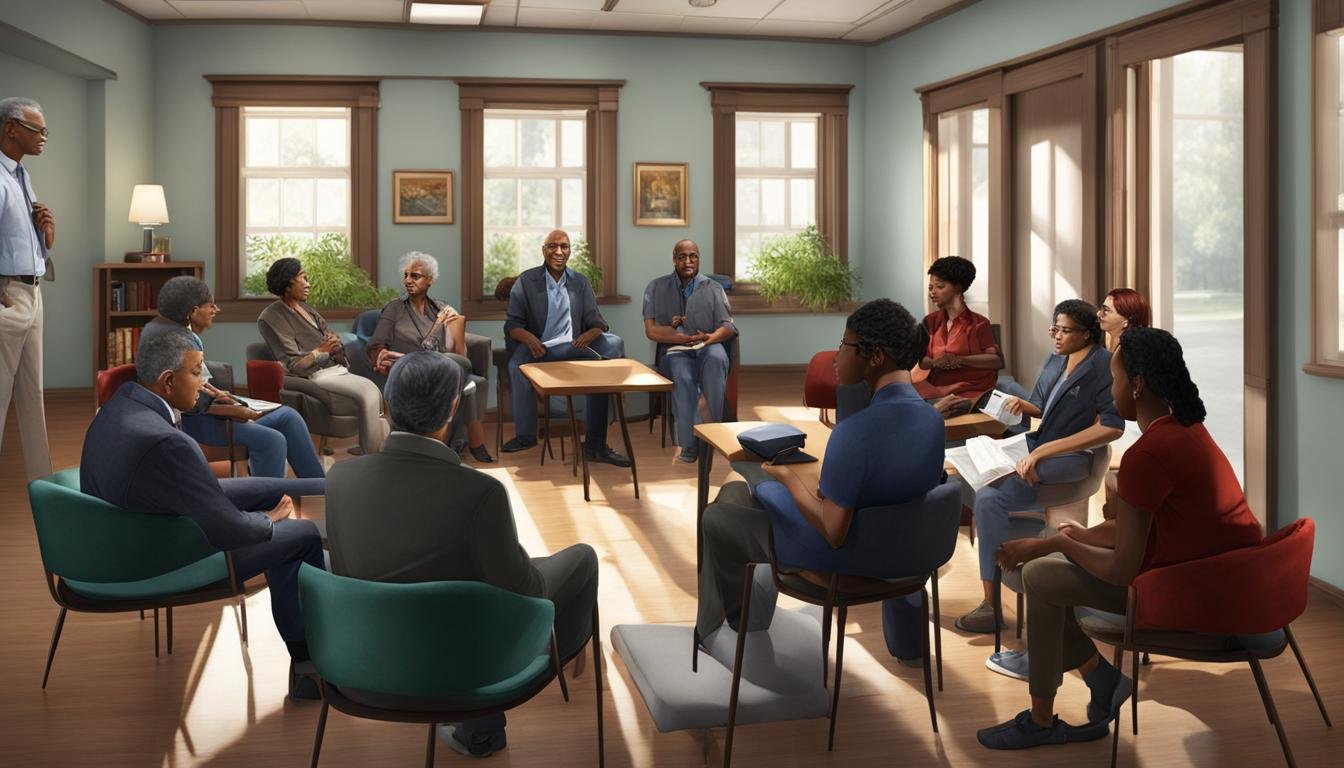Transitioning from military life to college can be a challenging process, but with the right guidance and resources, it can be a smooth and successful journey. The expanded opportunities created by the Post-9/11 GI Bill® and the Forever GI Bill® have made college education more accessible for over 1.7 million military veterans. However, the academic, social, and cultural realities of college life may require some adjustment. It is crucial to determine what benefits you are eligible for under the GI Bill® and select a school that matches your needs and interests. Additionally, it is important to overcome any stigma surrounding seeking support and take advantage of the various resources and support systems available, such as academic counseling, financial aid, and mental health services. Building a strong support system, setting goals, and understanding your benefits are essential steps in successfully transitioning from military to college life.
Key Takeaways:
- Understand the benefits available under the GI Bill® and choose a school that suits your needs.
- Overcome the stigma and utilize resources for academic support, financial aid, and mental health services.
- Build a strong support system and set goals for a smooth transition.
- Take advantage of the expanded opportunities provided by the Post-9/11 GI Bill® and the Forever GI Bill®.
- Investigate available resources and support systems for veterans adjusting to college life.
Overcoming Challenges and Seeking Support
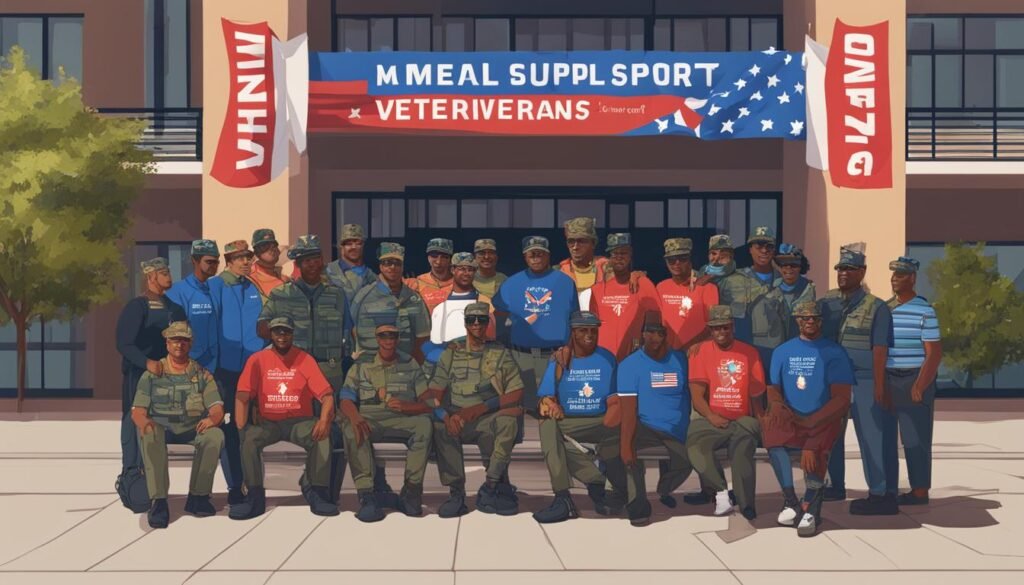
Transitioning from military life to college can present various challenges, but it’s important to remember that seeking support is a crucial aspect of a successful transition. As a military veteran in college, you may face unique obstacles and may find it difficult to ask for help due to the stigma surrounding post-service acclimation difficulties. However, reaching out for assistance is not a sign of weakness but rather a way to ensure a smooth adjustment period.
Fortunately, there are numerous resources available to provide support and guidance throughout your college journey. One vital avenue for help is your campus counseling services, where professionals can assist you in navigating the challenges you may encounter academically, socially, or personally. Additionally, community resources and fellow veterans can offer valuable insights and connections in order to overcome obstacles and thrive in your new environment.
When it comes to mental health support, many colleges have dedicated services specifically tailored to meet the needs of veterans. These resources can help you address any mental health concerns that may arise during your time in college. Furthermore, academic support is also readily accessible, with tutoring programs, study groups, and academic counseling services designed to help you excel in your coursework and adapt to the academic setting.
Remember, overcoming challenges and seeking support are essential steps in your transition from military to college life. By proactively managing daily obstacles and utilizing the available resources, you can navigate this new chapter with confidence and make the most out of your college experience.
Academic Support and Resources
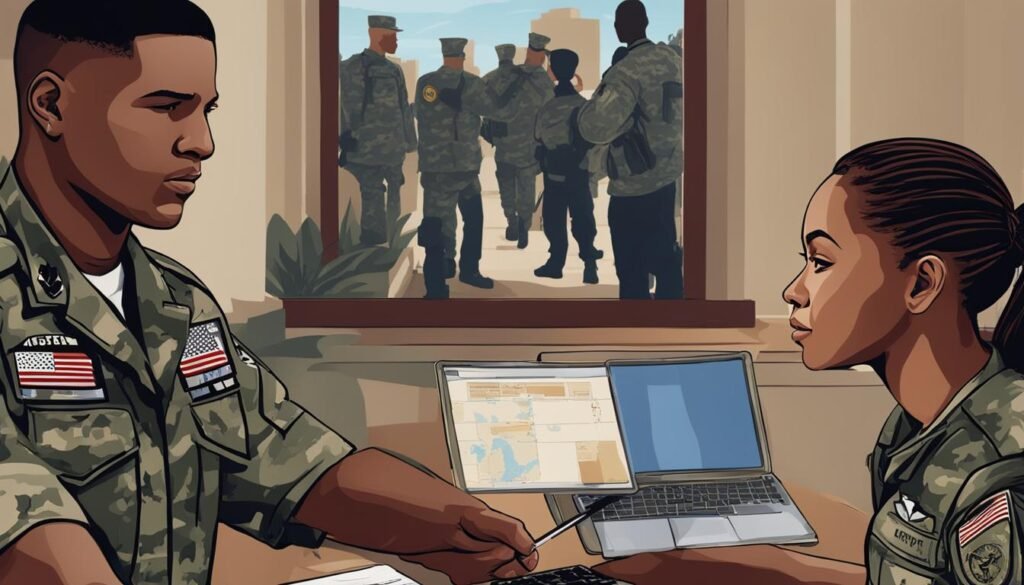
Veterans transitioning from military to college may encounter unique challenges when it comes to adapting to the academic environment. Fortunately, there are numerous resources available to provide academic support and help veterans succeed in their educational pursuits.
One valuable program is the Warrior-Scholar Project (WSP). This initiative offers immersive workshops that leverage the leadership, adaptability, and problem-solving skills developed through military service. By participating in WSP, veterans can enhance their academic abilities and gain confidence in their transition to college life.
Another organization that provides assistance is the National Association of Veterans Upward Bound (NAVUB). NAVUB helps veterans channel their skills and interests into the right educational path. They offer guidance on selecting the most suitable courses and programs that align with veterans’ goals, ensuring a smooth transition and maximizing the benefits of their military experience in college.
In addition to these programs, colleges themselves offer a range of resources and support services. Veterans can benefit from academic counseling, tutoring programs, and study groups, tailored to their specific needs. These services can help veterans refine their learning strategies, overcome any academic challenges they may face, and ensure their success in the college environment.
Furthermore, veterans should explore opportunities for earning college credit based on their military experience. Many colleges and universities have policies in place to evaluate military training and grant academic credit for relevant skills acquired during service. Taking advantage of this option can save veterans time and reduce the overall cost of their degree.
Table: Academic Resources and Programs for Veterans
| Program/Organization | Description |
|---|---|
| Warrior-Scholar Project (WSP) | Provides immersive workshops to enhance academic skills and facilitate the transition to college life. |
| National Association of Veterans Upward Bound (NAVUB) | Offers guidance and support to help veterans select the right educational path and maximize the benefits of their military experience. |
| College Academic Counseling | Individualized counseling services to help veterans adapt their learning strategies and overcome academic challenges. |
| Tutoring Programs | Support services that provide extra assistance in specific subjects or areas where veterans may need additional help. |
| Study Groups | Opportunities to collaborate with peers and engage in group learning, fostering a sense of community and support. |
| Earning College Credit for Military Experience | Colleges may grant academic credit for relevant skills acquired during military service, reducing time and costs in earning a degree. |
– How Can Military Experience Help Veterans Succeed in College?
Military experience can provide veterans with valuable skills that can help them succeed in college. Developing discipline, time management, and leadership during their service can put them at an advantage when transitioning into academic life. Implementing effective strategies for college transition can ease the adjustment and enhance their academic performance.
Conclusion
In conclusion, transitioning from military life to college requires careful planning, support systems, and a positive mindset. As a military veteran, you possess a unique set of skills and qualities that can contribute to your success as a college student. Your discipline, organization, time management, and attentiveness are essential attributes that can help you excel in your academic pursuits.
It is important to remember that seeking support is not a sign of weakness but a way to ensure a smooth transition. Take advantage of the resources and assistance provided by your college, veteran’s groups, and student-run organizations. Overcoming the stigma surrounding seeking help and getting involved in student life are crucial steps in your journey towards a successful college experience.
By embracing the opportunities and support available, you can navigate the challenges of college life and make the most of your educational journey. Whether it’s accessing academic help, connecting with fellow veterans, or accessing mental health support, remember that you are not alone in this process. Utilize the resources tailored for veterans and create a strong support system that will help you achieve your educational and career goals.
In summary, transitioning from military to college life can be a complex process. However, by utilizing your skills, embracing the available resources, and seeking support when needed, you can thrive in your college experience. Remember, you have already demonstrated resilience and determination during your military service, and with the right mindset, you can overcome any obstacle and achieve success in your academic endeavors.

